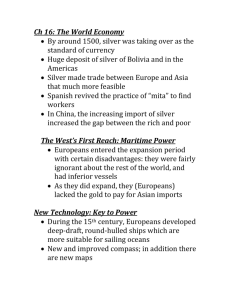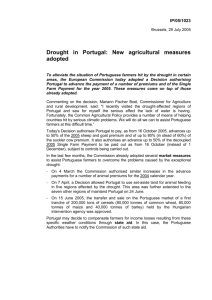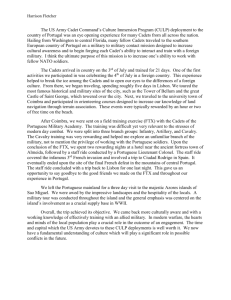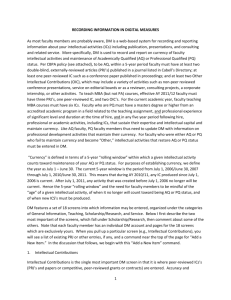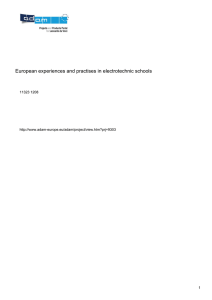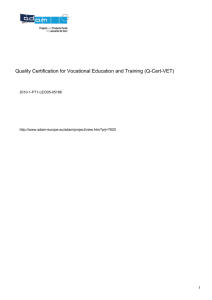1 CV Maria Eugénia Mata is Associate Professor at the Faculdade
advertisement
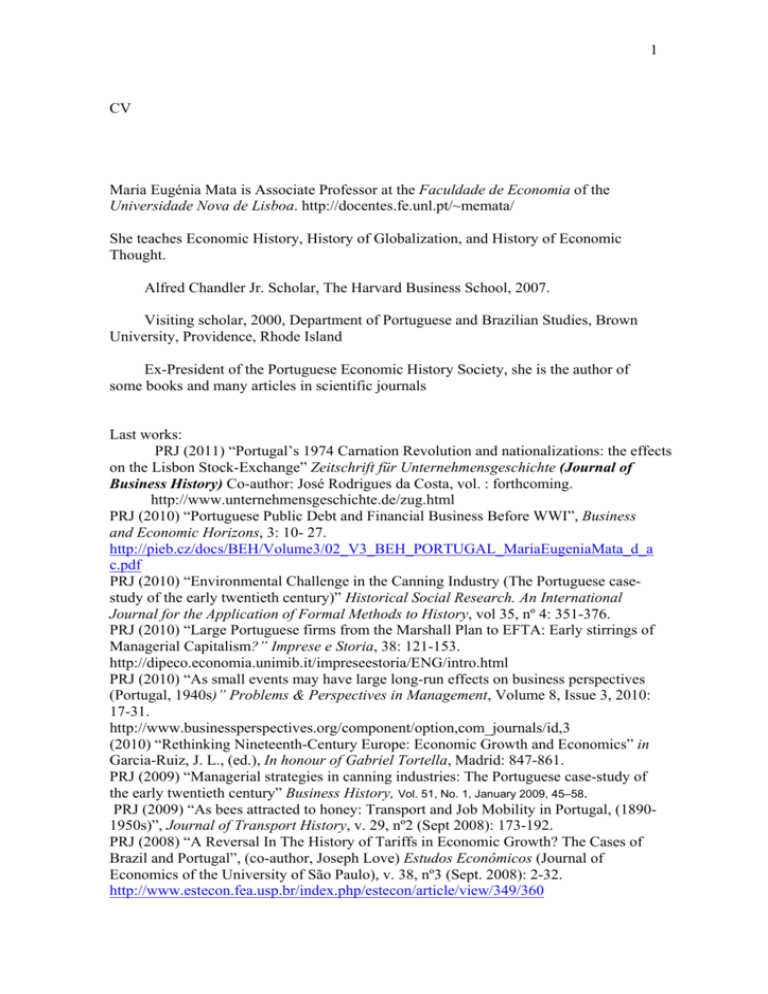
1 CV Maria Eugénia Mata is Associate Professor at the Faculdade de Economia of the Universidade Nova de Lisboa. http://docentes.fe.unl.pt/~memata/ She teaches Economic History, History of Globalization, and History of Economic Thought. Alfred Chandler Jr. Scholar, The Harvard Business School, 2007. Visiting scholar, 2000, Department of Portuguese and Brazilian Studies, Brown University, Providence, Rhode Island Ex-President of the Portuguese Economic History Society, she is the author of some books and many articles in scientific journals Last works: PRJ (2011) “Portugal’s 1974 Carnation Revolution and nationalizations: the effects on the Lisbon Stock-Exchange” Zeitschrift für Unternehmensgeschichte (Journal of Business History) Co-author: José Rodrigues da Costa, vol. : forthcoming. http://www.unternehmensgeschichte.de/zug.html PRJ (2010) “Portuguese Public Debt and Financial Business Before WWI”, Business and Economic Horizons, 3: 10- 27. http://pieb.cz/docs/BEH/Volume3/02_V3_BEH_PORTUGAL_MariaEugeniaMata_d_a c.pdf PRJ (2010) “Environmental Challenge in the Canning Industry (The Portuguese casestudy of the early twentieth century)” Historical Social Research. An International Journal for the Application of Formal Methods to History, vol 35, nº 4: 351-376. PRJ (2010) “Large Portuguese firms from the Marshall Plan to EFTA: Early stirrings of Managerial Capitalism?” Imprese e Storia, 38: 121-153. http://dipeco.economia.unimib.it/impreseestoria/ENG/intro.html PRJ (2010) “As small events may have large long-run effects on business perspectives (Portugal, 1940s)” Problems & Perspectives in Management, Volume 8, Issue 3, 2010: 17-31. http://www.businessperspectives.org/component/option,com_journals/id,3 (2010) “Rethinking Nineteenth-Century Europe: Economic Growth and Economics” in Garcia-Ruiz, J. L., (ed.), In honour of Gabriel Tortella, Madrid: 847-861. PRJ (2009) “Managerial strategies in canning industries: The Portuguese case-study of the early twentieth century” Business History, Vol. 51, No. 1, January 2009, 45–58. PRJ (2009) “As bees attracted to honey: Transport and Job Mobility in Portugal, (18901950s)”, Journal of Transport History, v. 29, nº2 (Sept 2008): 173-192. PRJ (2008) “A Reversal In The History of Tariffs in Economic Growth? The Cases of Brazil and Portugal”, (co-author, Joseph Love) Estudos Econômicos (Journal of Economics of the University of São Paulo), v. 38, nº3 (Sept. 2008): 2-32. http://www.estecon.fea.usp.br/index.php/estecon/article/view/349/360 2 PRJ (2008) “The role of implicit contracts (Building Public Works in the 1840s in Portugal)”, Business History, Vol 50 No 2 (March 2008): 145-160. (2008) “A forgotten country in Globalisation? The role of foreign capital in nineteenthcentury Portugal” Margrit Müller; Timo Myllyntaus (eds.), Small European countries responding to Globalisation and De-globalisation, Bern, Berlin, Bruxelles, Frankfurt am Main, New York, Oxford, Wien, 2008: 177-209. ISBN 3-03911-214-7/US-ISBN 08204-8907-7pb. PRJ (2007) “From Pioneer Mercantile State To Ordinary Fiscal State: Portugal 16th-19th Centuries”, Journal of Iberian and Latin American Economic History, XXV, nº 1, Spring 2007: 123-145. PRJ (2007) “Inter-racial marriage in the last Portuguese colonial empire”, e-Journal of Portuguese History, vol. 5, n. 1, Summer 2007: 1-22. http://www.brown.edu/Departments/Portuguese_Brazilian_Studies/ejph/html/issue9/pdf/ mmata.pdf PRJ (2007) “Cardinal Versus Ordinal Utility: António Horta Osório’s contribution”, The Journal of the History of Economic Thought, vol. 29, nº 4, Dec 2007: 465-479.



